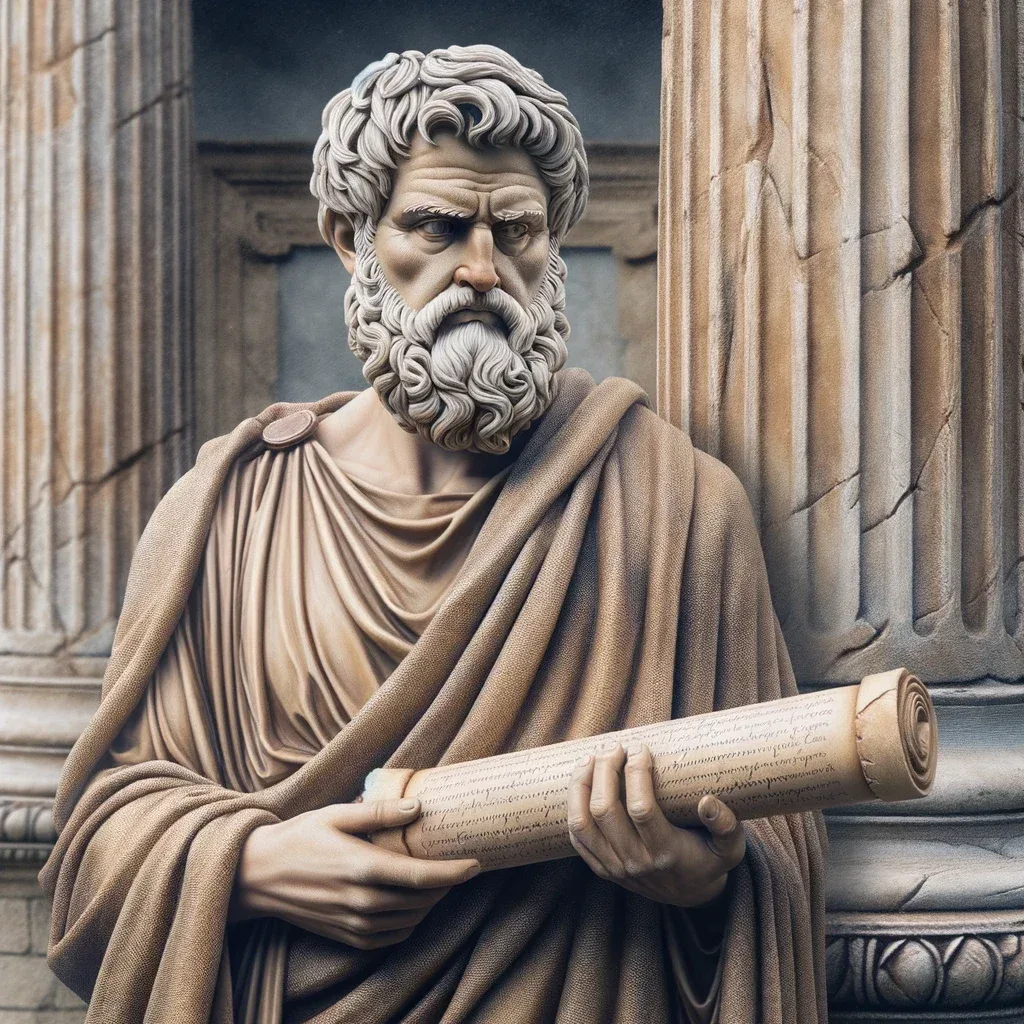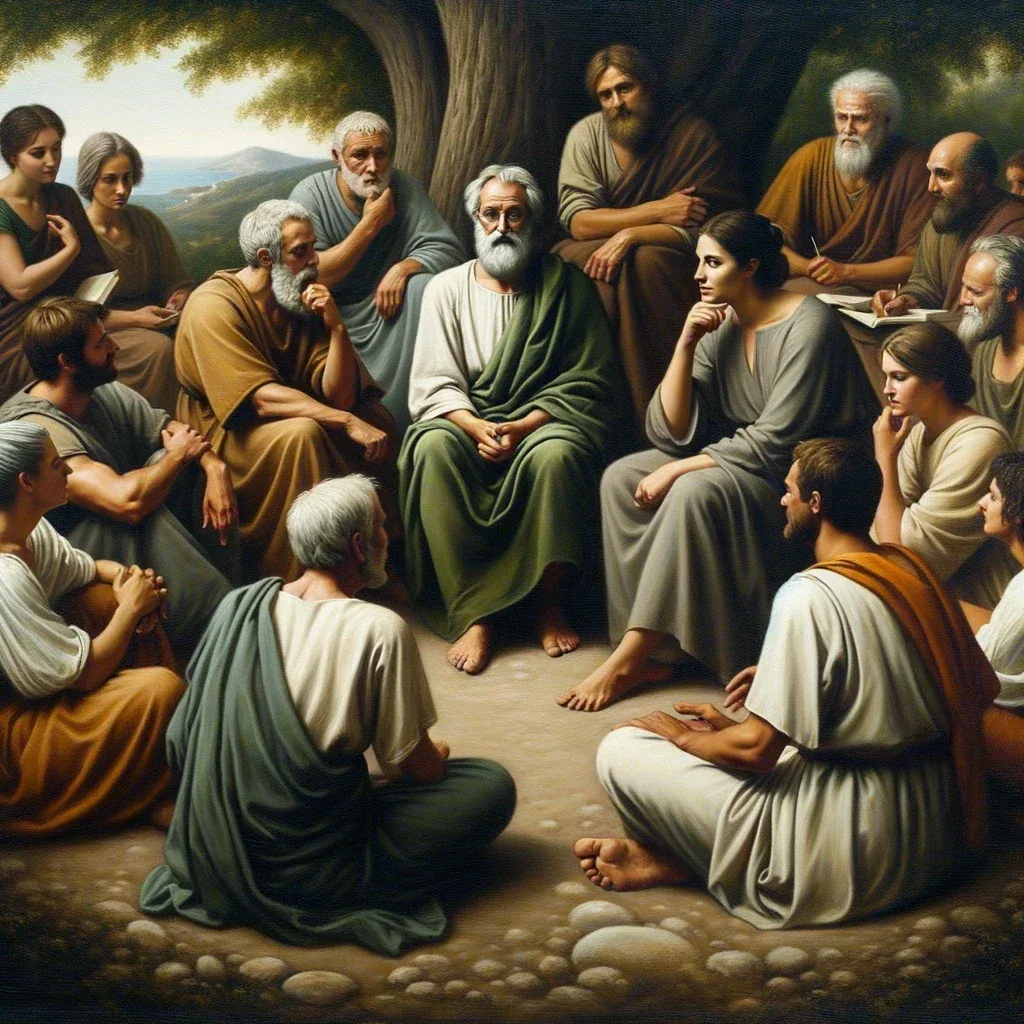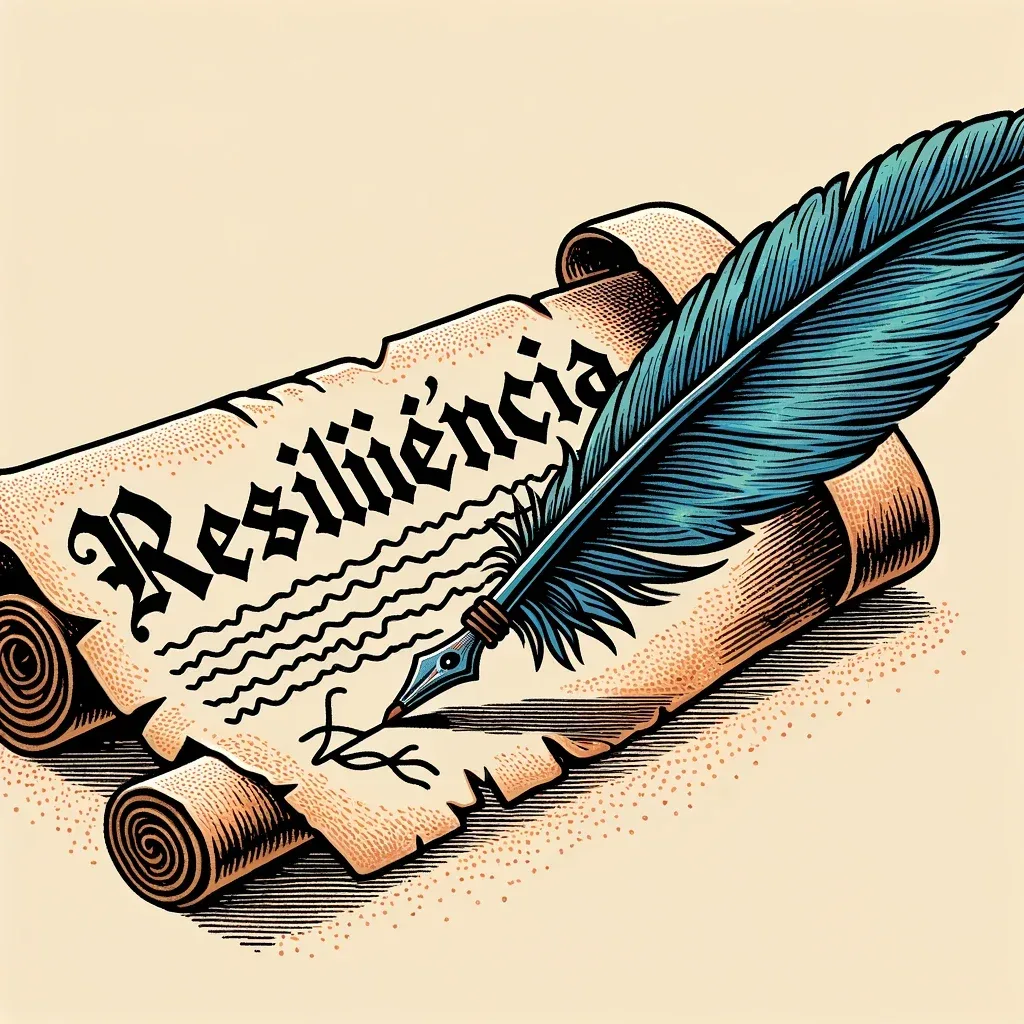Lucius Annaeus Seneca, a prominent Stoic philosopher from Ancient Rome, offers valuable insights into how to cultivate resilience in the face of adversity. His lessons, although ancient, resonate with a striking relevance in our modern world full of challenges. This article delves into Seneca's lessons on the art of resilience, exploring the relevance and applicability of his philosophies for facing challenges and adversity in everyday life.

Seneca's Stoic Philosophy: A Foundation for Resilience
Seneca's philosophy is a pillar of Stoicism, emphasizing virtue, wisdom, and control over emotions as means to achieve inner peace and resilience.
Virtue as the Supreme Goal
Seneca places virtue as the main objective in an individual's life. He believed that pursuing virtue, more than wealth or fame, leads to a meaningful and resilient life. Virtue, in Seneca's philosophy, is synonymous with wisdom, and it is through wisdom that we can face adversity with a calm and balanced mind.
The pursuit of virtue, according to Seneca, enables us to face life's challenges with dignity and resilience. It is the virtue that allows us to maintain our serenity even in the face of the most challenging adversities, cultivating an inner strength that is immune to the vicissitudes of life.
Acceptance of Nature
Accepting the nature of things and circumstances that are beyond our control is a central practice in Seneca's Stoic philosophy. He advises that we should accept the natural course of events, recognizing what is beyond our control and focusing on what we can change: our own responses and attitudes.
This acceptance is not a form of passive resignation, but an active choice to embrace reality as it is. It is the foundation for developing resilience, because by accepting the nature of life and its inherent adversities, we can face challenges with a balanced perspective and a clear mind.
Self-Discipline and Emotional Control
For Seneca, emotional control is crucial to facing adversity with resilience. It emphasizes the importance of maintaining a calm mind, avoiding impulsive reactions that are often motivated by negative emotions such as anger, fear or sadness.
Self-discipline, according to Seneca, goes beyond simple emotional control. It is a commitment to live according to reason and virtue, avoiding excesses and maintaining a balance in all areas of life. Self-discipline enables us to respond to adversity in a measured and considered way, promoting resilience and long-term well-being.
Practical Lessons in Resilience from Seneca
Seneca not only theorized about resilience, but also offered practical strategies that can be integrated into our daily routine to cultivate mental fortitude.

Preparatory Meditation
One of the most powerful practices proposed by Seneca is preparatory meditation, where he advises reflecting on potential challenges that may arise during the day. This practice mentally prepares us for adversity, helping us maintain calm and perspective even when things don't go as planned.
Furthermore, preparatory meditation allows us to visualize how we can respond virtuously and resiliently to adversity. By doing this regularly, we cultivate a mindset of resilience that serves us well in the face of life's challenges.
Reflection and Continuous Learning
Seneca emphasizes the importance of reflection and continuous learning as a means of cultivating resilience. He advises reflecting on our actions, decisions and responses to challenges at the end of each day, learning from our experiences to improve and grow.
Furthermore, Seneca suggests that we should learn from the wise and the virtuous, studying their lives and teachings to gain insights into how to live resiliently and virtuously. Continuous learning, according to Seneca, is a journey of self-development that equips us with the wisdom and resilience necessary to face adversity with dignity.
Focus on the Present
Seneca also teaches us the importance of living in the present, avoiding worry about the future or regretting the past. He believes that by focusing on the present, we can respond to adversity more effectively and resiliently, without being burdened by future anxieties or past regrets.
Living in the present, according to Seneca, also allows us to appreciate the beauty and richness of each moment, cultivating an attitude of gratitude and contentment that is fundamental to resilience. By practicing mindfulness and focusing on the present, we can cultivate lasting resilience that helps us navigate life's challenges with a balanced perspective and positive attitude.
Applying Seneca's Lessons to Modern Life
Seneca's lessons of resilience have timeless relevance, offering valuable strategies for facing the challenges and adversities of modern life.

Developing Emotional Resilience
The meditation and reflection practices suggested by Seneca are powerful tools for developing emotional resilience. By cultivating self-awareness and self-discipline through meditation and reflection, we can learn to respond to adversity with calm and equanimity, avoiding impulsive and emotional reactions.
Furthermore, by following Seneca's advice to live according to virt
ude and reason, we can develop an emotional resilience that helps us maintain our serenity and balance, even in the face of the most challenging adversities.
Ethical Decision Making
Seneca offers a valuable framework for making ethical decisions, emphasizing the importance of living according to virtue and reason. When facing moral dilemmas or difficult decisions, we can turn to Seneca's Stoic principles for guidance, promoting integrity and resilience in the face of ethical challenges.
By adopting an ethical and virtuous approach to decision-making, we can face adversity with a clear conscience and a sense of purpose, cultivating resilience and moral integrity.

Cultivating Inner Serenity
Acceptance of nature and focusing on the present, as suggested by Seneca, are central practices for cultivating inner serenity. By accepting reality as it is and living in the present moment, we can cultivate an inner peace that sustains us through life's challenges and adversities.
This inner serenity is the essence of resilience, providing mental fortitude that allows us to face life's challenges with courage and confidence. By integrating Seneca's lessons into our daily lives, we can cultivate lasting resilience that equips us to face adversity with equanimity and fortitude.
Conclusion
Seneca, through his stoic wisdom, offers a valuable guide for cultivating resilience in the face of adversity. Her lessons on virtue, emotional control, accepting nature, and focusing on the present are practical strategies that can be applied in everyday life to develop lasting resilience. By exploring and applying Seneca's teachings, we can learn to face life's challenges and adversities with a calm mind, a positive attitude, and unwavering resilience.
FAQ: Seneca and the Art of Resilience

1. Who was Seneca and what was his contribution to Stoic philosophy?
Lucius Annaeus Seneca, better known as Seneca, was a XNUMXst century AD Roman philosopher, writer, and politician who became one of the most prominent Stoic philosophers. He was known for his eloquent wisdom and his ability to distill complex philosophical principles into practical advice for daily living. His vast work includes philosophical treatises, letters, and tragedies, which have continued to inspire and guide individuals through the centuries.
Seneca, through his works, made significant contributions to Stoic philosophy. He deeply explored themes such as virtue, acceptance of nature, emotional control and resilience in the face of adversity. His practical and accessible approach to Stoicism has offered a way for many to understand and apply Stoic principles to their lives, providing a path to resilience and inner peace.
2. What does Seneca understand by virtue and how does it contribute to resilience?
For Seneca, virtue is seen as the greatest aspiration of human beings and is synonymous with wisdom. He believes that virtue is the only true good, and that by pursuing virtue, individuals can achieve a full and meaningful life. Virtue, in Seneca's philosophy, offers a moral compass and mental fortitude, which are essential for facing adversity with dignity and resilience.
Virtue contributes to resilience by providing an ethical and moral framework for navigating life's challenges. By living virtuously, individuals can maintain a balanced perspective and a calm mind in the face of adversity, which is crucial to responding to challenges in a resilient manner. Furthermore, virtue promotes a sense of purpose and meaning, which can be a powerful motivator to persevere in the face of obstacles and adversity.
3. How can acceptance of nature help with resilience, according to Seneca?
Seneca emphasizes the importance of accepting nature and circumstances that are beyond our control as a way to cultivate resilience. By accepting reality as it is, without resistance or denial, individuals can face adversity with a more balanced and realistic attitude. This acceptance of nature is seen as a form of liberation from the anxieties and worries that come with resistance to reality.
Furthermore, acceptance of nature allows individuals to focus their energy and attention on what they can control: their own responses and attitudes. This is a central principle in Seneca's Stoic philosophy, which promotes a proactive and resilient response to adversity rather than an impulsive or emotional reaction. By accepting the nature of things and adopting a centered, deliberate approach to facing challenges, individuals can cultivate a lasting resilience that sustains them through the vicissitudes of life.
4. What are the practices suggested by Seneca to develop resilience?
Seneca suggests several practices to develop resilience, including preparatory meditation, reflection and continuous learning, and focusing on the present. Preparatory meditation involves reflecting on potential adversity and visualizing how we can respond in a virtuous and resilient way. This practice helps prepare the mind for adversity, promoting a calm and considered response.
Reflection and continuous learning, on the other hand, involve an analysis of one's actions and responses to challenges, as well as the study of the lives and teachings of the wise and virtuous. Focusing on the present is a core practice that promotes mindfulness and avoids worrying about the future or lamenting the past, which Seneca says is crucial for maintaining a balanced and resilient perspective in the face of adversity. These practices, when integrated into daily life, can cultivate lasting resilience and a positive attitude toward life's challenges.
5. How can Seneca's lessons be applied in modern life to cultivate resilience?
Seneca's lessons have timeless relevance and offer valuable strategies for cultivating resilience in modern life. The practices suggested by Seneca, such as meditation, reflection and focusing on the present, are powerful tools for developing emotional resilience. Furthermore, Seneca's emphasis on virtue and acceptance of nature provides an ethical and moral framework for facing challenges and adversities with dignity and integrity.
Furthermore, by living according to Seneca's Stoic principles, individuals can cultivate an inner serenity and mental fortitude that help them face life's challenges with courage and confidence. Seneca's practical and accessible approach to Stoicism offers a clear and concrete path to integrating resilience into our daily lives, providing a solid foundation for facing adversity with a calm mind and a positive attitude.






